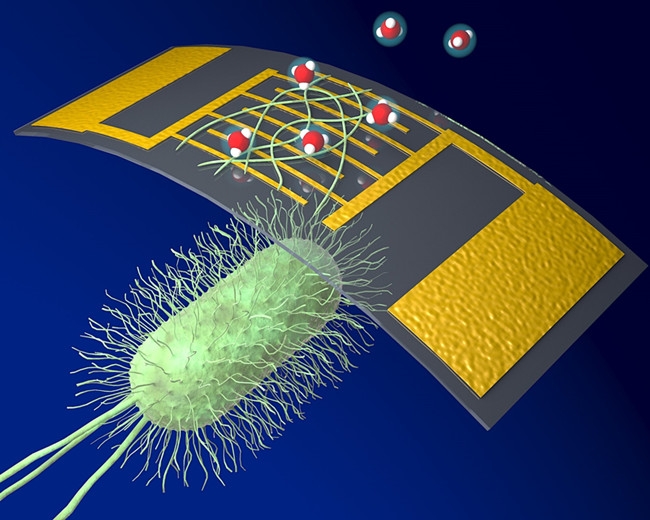Scientists use protein nanowires to make highly sensitive chemical sensors
[ Instrument R & D in Instrument Network ] On May 14th, a research team from the University of Massachusetts Amherst wrote this week in the journal nanosearch that they have developed biological Electronic ammonia sensor, this sensor is one of the very sensitive sensors.
The sensor uses conductive protein nanowires from the bacteria Geobacter to provide biological materials for electronic devices. More than 30 years ago, senior writer and microbiologist Derek Lovli discovered Geobacter in river mud. These microorganisms grow hair-like protein filaments that can be used as nano-scale "wires" for their The nutrients transport charges and communicate with other bacteria.
The first author, Alexander Smith, a doctoral student in biomedical engineering, and his mentors, Jun Yao and Lovley, showed that they designed the first sensor to measure ammonia because ammonia It is important for agriculture, environment and biomedicine. For example, in humans, ammonia in the breath may be a sign of disease, and in poultry farming, gas must be closely monitored and controlled to ensure bird health and comfort, and to avoid feed imbalances and production losses.
Smith said: "This sensor can perform high-precision sensing. It is much better than previous electronic sensors. Existing electronic sensors are usually either limited or low in sensitivity, and are easily interfered by other gases. In addition to superior functions In addition to low cost, our sensors are biodegradable, so no electronic waste is produced, and they are produced continuously by bacteria that use renewable raw materials without the use of toxic chemicals. "
Smith conducted an 18-month experiment during his doctorate. From his early research by his tutor Lovley, it can be known that the conductivity of protein nanowires varies with the pH of the solution around the protein nanowires. (Acid or base levels), which prompted the researchers to test their idea of ​​a highly reactive molecular binding to biosensing.
Smith pointed out: "If they are exposed to chemicals, their properties will change and the response can be measured. When the nanowires are exposed to ammonia, the reaction is very obvious and significant. Early, we found that we can adjust the sensor's Way, showing this important reaction, they are very sensitive to ammonia and much less sensitive to other compounds, so this sensor is very special. "
Loveli added that "this" very stable "nanowire can last a long time, and the sensor can continue to work steadily after several months of use, and works very well. This new application area is in line with our previous research This is completely different. This work is the first proof of concept for nanowire sensors. Once we return to the laboratory, we will develop sensors for other compounds, and we are adjusting them for a range of other compounds. "
Previously, the research team reported that they used protein nanowires to extract energy from humidity and used it as a biocomputing storage.
Customized Filter Bags
FZ Filter Customized Filter Bags are including Cartridge Type Filter Bags,High Flow Pleated Filter Bags,Active Carbon Filter Bags,which are widely application in food and beverage industry ,car and automobile industry,Chemical Industry ,Pharmaceutical industry,Waste water treatment industry ,Metal finishing industry.
Our 30 years of experience give us an advantage over our competitors and imported textile machinery guarantee the quality of products .We own and run complete filter cloth and filter bag production lines. From the raw material to the finished produts.
Customized Filter Bags,Cartridge Type Filter Bags,High Flow Pleated Filter Bags,Active Carbon Filter Bags
Shanghai Feizuo Environment Technology Co,.Ltd , https://www.fzfilter.com

